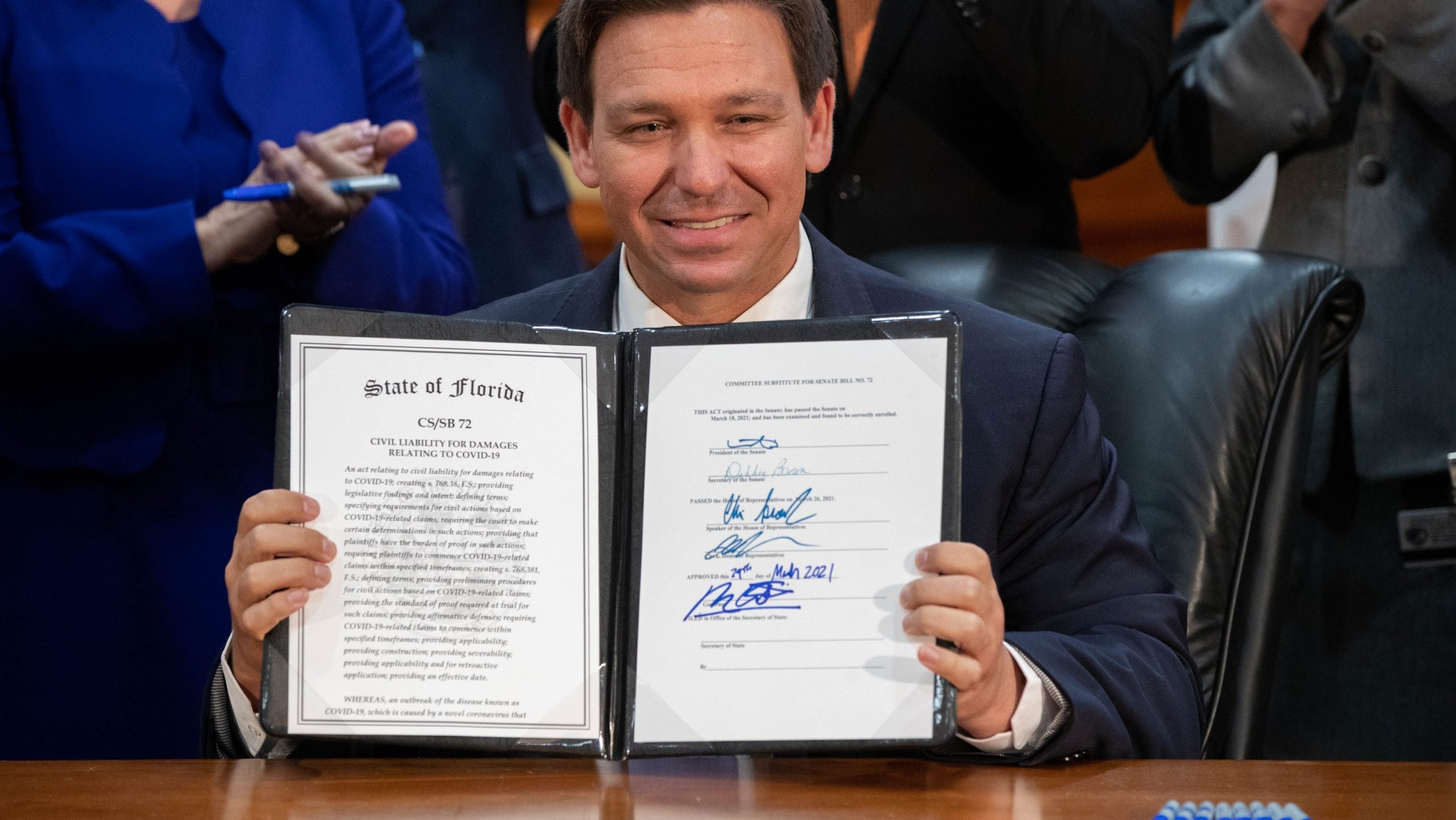A bill in Florida that aims to criminalize harassment against first responders while they are on duty is currently awaiting Governor Ron DeSantis’ signature. This bill, known as Senate Bill 184, has been approved by the state legislature.
The primary objective of Senate Bill 184 is to prohibit individuals from harassing police officers, correctional probation officers, firefighters, or emergency medical care providers who are actively engaged in lawful duties. Specifically, the bill targets individuals who have already been warned not to approach these first responders.
Harassment under this bill is defined as willfully engaging in conduct directed at a first responder that intentionally causes substantial emotional distress without any legitimate purpose.

Governor DeSantis Signing Florida Bill (Credits: Spectrum News 13)
How the Bill Works
The bill includes provisions that mandate individuals to maintain a distance of at least 25 feet from a working first responder after being verbally warned to stay away. This restriction applies when individuals are impeding or interfering with the first responder’s job duties or posing a threat of physical harm.
Sheriff Mike Chitwood of Volusia County expressed his support for Senate Bill 184, citing an increase in aggressive and dangerous behavior directed at law enforcement officers.

Sheriff Mike Chitwood of Volusia County (Credits: WESH)
He emphasized the need for professional conduct, stating that individuals have the right to observe and film police activities from a reasonable distance. However, he stressed that approaching officers in a confrontational manner or attempting to provoke them into a reaction is unacceptable.
The ChitWood Crisis
Chitwood clarified that while he expects his deputies to maintain professionalism, he will not discipline them for using strong language or calling out disruptive individuals if it aligns with the situation.
In terms of legal consequences, if Senate Bill 184 is signed into law, harassing a first responder would constitute a second-degree misdemeanor in Florida. Violators could face penalties such as a fine of up to $500 or a maximum of two months in jail. The law is scheduled to take effect on January 1 of the upcoming year.























